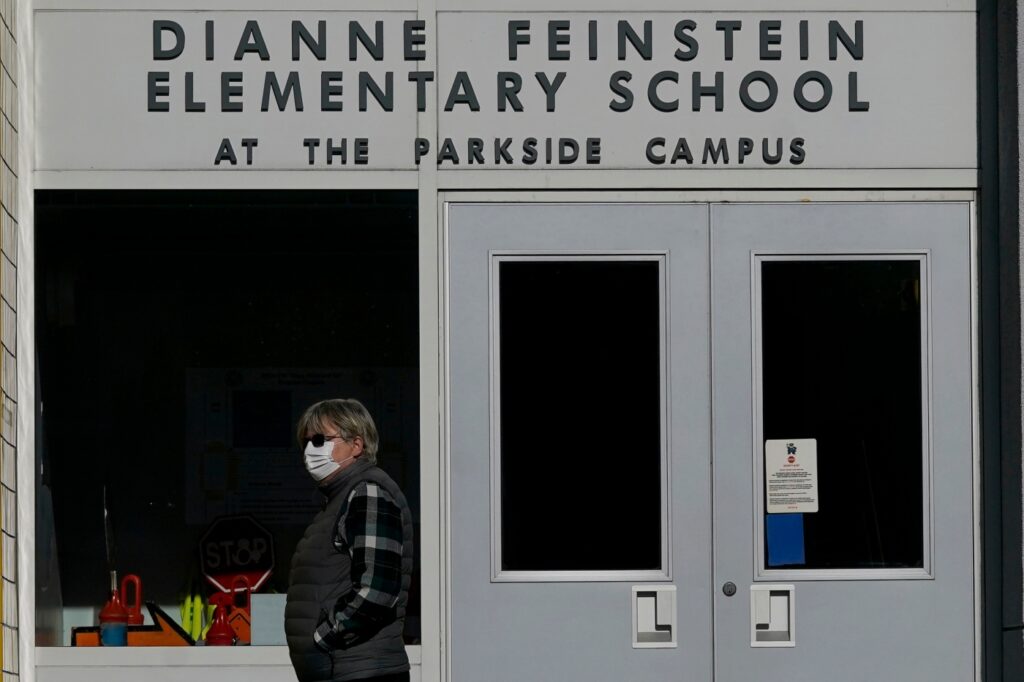
There’s no mistaking the message Tuesday’s recall election sent to the San Francisco Board of Education: focus on education, not racial politics.
In addition to the Board’s myopic focus on renaming schools instead of reopening them last year, the landslide results were also motivated by the Board’s decision to scrap competitive merit-based admissions at the prestigious Lowell High School.
The admissions overhaul was intended to admit more black and Hispanic students to Lowell High School and fewer Asian-American students, a decision squarely at odds with the Fourteenth Amendment, which prohibits racial balancing.
Asian-American families, seeing their children’s educational opportunities closed off under the new admissions scheme, made their voices heard on Tuesday in record numbers. But will the Board of Education finally get the message?
Lowell is the latest front in a campaign playing out in school districts nationwide as education officials undermine merit-based admissions policies at competitive public schools to manipulate their racial makeup. Race-blind admissions standards, like standardized test scores and GPAs, are rapidly giving way to more subjective and easily manipulated criteria.
Since courts have already ruled that racial balancing in schools is unconstitutional, public education officials have resorted to pursuing the same goals through more covert means like weighted lotteries and holistic rubrics that award extra points based on racial proxies.
In virtually every case, the losers are Asian-American children who find their hard work pushed aside because school officials believe there are already too many Asian-American students in competitive schools. That was certainly the case at Lowell, which boasted a notably diverse student body — 82 percent of students were non-white before the lottery’s implementation. But with over half of that student body comprised of Asian-American students, the Board of Education found Lowell to be the wrong kind of diverse. Suddenly, race-blind admissions standards were out, and a weighted lottery was in.
The Board got the results it wanted: Lowell’s first freshman class under the new lottery system saw an increase in black and Hispanic students. But those increases came at the expense of Asian-American kids. Last year’s freshman class included 330 Asian-American students; with the new admissions standards, their numbers dropped precipitously to 270. Student performance varies year to year, but that doesn’t explain such a large drop in a single admissions cycle.
In reality, the new admissions standards are doing exactly what they were intended to do, reduce the numbers of Asian-American students at the city’s flagship high school.
Related Articles
Honoring the irreplaceable P.J. O’Rourke
We can’t defend Ukraine and Taiwan
Why experts should embrace humility after their inflation miscalculation
Repeal Proposition 19’s death tax
DA report on shooting of homeless man Kurt Reinhold falls short
If San Francisco’s education establishment were serious about addressing the lack of black and Hispanic students in elite programs, they’d focus on improving the elementary and middle school pipeline to help prepare all students for the challenges of a school like Lowell. But that would take time, money, and steady commitment. Instead, they took the easy way out by eliminating Lowell’s high standards and discriminating against hard-working Asian-American students.
This week’s recall vote says loud and clear that San Francisco parents will not stand by while out of touch public officials subject their children to outright discrimination. If the Board of Education turns a deaf ear, those parents can follow the example of parents in New York City, Boston, and metro DC by going to federal court to defend their children’s right to be treated equally. The situation in San Francisco bears watching for anyone who believes public schools should focus on education, not racial politics.
Erin Wilcox is an attorney at Pacific Legal Foundation, a nonprofit legal organization that defends Americans’ liberties when threatened by government overreach and abuse.
